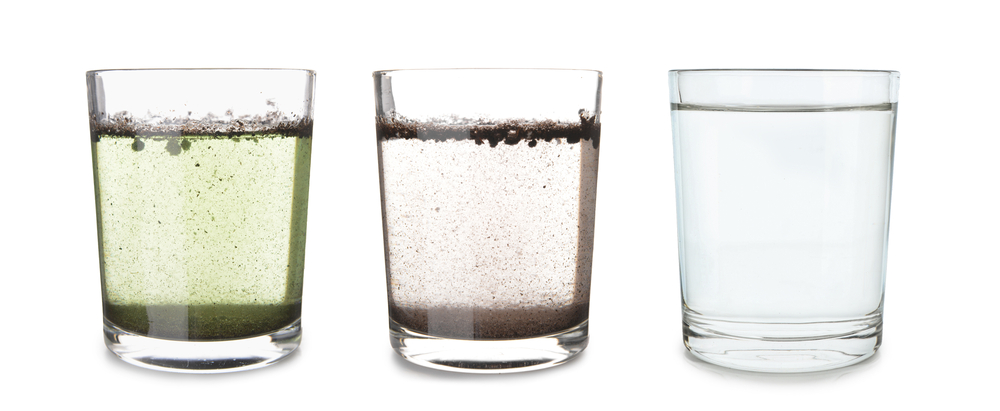
Common Contaminants in Water and Their Health Implications
Water is essential for life, but its quality is not always guaranteed. Various contaminants can compromise the safety of our drinking water, leading to potential health risks. In this blog, we will explore some common water contaminants, their sources, and the associated health implications. We will also discuss water testing in Pisgah Forest, North Carolina, and the importance of effective contaminant removal.
Common Water Contaminants
Heavy Metals
Heavy metals like lead, mercury, and arsenic are significant contaminants often found in water supplies. These metals can enter the water through natural deposits, industrial discharges, or deteriorating infrastructure.
- Lead: Often found in old plumbing systems, lead can cause developmental issues in children, affect kidney function, and increase blood pressure in adults.
- Mercury: This metal can originate from industrial waste or agricultural runoff and is known for causing kidney damage, neurological disorders, and developmental issues in children.
- Arsenic: Typically found in well water, arsenic exposure can lead to cancer, skin lesions, and developmental effects.
Microbial Contaminants
Microbial contaminants include bacteria, viruses, and protozoa that can cause a range of health issues.
- E. coli: This bacterium can cause severe gastrointestinal distress, including diarrhea, vomiting, and abdominal pain.
- Cryptosporidium: A protozoan parasite that can lead to chronic diarrhea and dehydration.
- Giardia: Another protozoan parasite causing gastrointestinal upset and diarrhea.
Chemical Contaminants
Chemical contaminants are a diverse group, including pesticides, industrial chemicals, and pharmaceuticals.
- Pesticides: Used in agriculture, these chemicals can contaminate water supplies and have been linked to various health problems, including cancer and hormone disruption.
- Industrial Chemicals: Chemicals like solvents and refrigerants can enter water supplies through industrial waste and pose health risks such as respiratory problems and cancer.
- Pharmaceuticals: Residues from medications can affect hormone systems and potentially lead to antibiotic resistance.
Nitrates
Nitrates primarily come from agricultural runoff and can lead to a condition known as methemoglobinemia or “blue baby syndrome,” which affects the ability of blood to carry oxygen in infants.
Health Risks of Water Impurities
Contaminated water poses significant health risks, ranging from acute to chronic conditions. Understanding these risks is crucial for maintaining health and preventing illness.
Acute Health Effects
Short-term exposure to contaminated water can result in immediate health issues such as:
- Gastrointestinal Illnesses: Pathogens like E. coli and Cryptosporidium can cause severe stomach cramps, diarrhea, and vomiting.
- Respiratory Issues: Certain chemicals and microbes in water can lead to respiratory problems, particularly in individuals with pre-existing conditions.
Chronic Health Effects
Long-term exposure to water contaminants can lead to serious health problems:
- Cancer: Long-term exposure to heavy metals, pesticides, and industrial chemicals is linked to various types of cancer.
- Neurological Disorders: Metals like lead and mercury can cause long-term cognitive and developmental issues.
- Kidney Damage: Chronic exposure to contaminants like arsenic and mercury can severely damage the kidneys.
Water Testing in Pisgah Forest, North Carolina
In Pisgah Forest, North Carolina, ensuring water quality is essential due to the potential presence of various contaminants. Local water testing services are vital for:
- Identifying Contaminants: Regular testing helps detect harmful substances in the water, ensuring it meets safety standards.
- Protecting Health: By identifying contaminants, residents can take appropriate actions to safeguard their health and well-being.
- Maintaining Safety: Regular water testing ensures that local water supplies remain safe for consumption and use.
Importance of Regular Testing
Regular water testing is crucial for:
- Early Detection: Identifying contaminants before they reach harmful levels.
- Informed Decisions: Making informed choices about water treatment and purification.
- Compliance: Ensuring compliance with local and federal water quality standards.
Contaminant Removal
Effective contaminant removal is essential for maintaining safe and clean water. Various methods are available depending on the type of contaminant.
Filtration Systems
- Activated Carbon Filters: Effective for removing chlorine, pesticides, and some heavy metals.
- Reverse Osmosis: Useful for removing a broad range of contaminants, including heavy metals and chemicals.
Distillation
Distillation involves boiling water and then condensing the steam back into a liquid, removing most contaminants, including bacteria and heavy metals.
Water Softeners
Water softeners can help remove minerals like calcium and magnesium, reducing scale buildup and improving the effectiveness of other water treatments.
Conclusion
Ensuring that our water is free from contaminants is essential for protecting our health and well-being. Understanding the common water contaminants and their health implications helps in making informed decisions about water treatment and testing. In Pisgah Forest, North Carolina, regular water testing and effective contaminant removal are critical for maintaining the safety and quality of local water supplies. By staying informed and proactive, we can ensure that our water remains a safe and vital resource for ourselves and future generations.
Got Questions? Let Us Help!
Welcome to Royal Water Works, Inc.! We are a family-owned business that has been serving the heart of Pisgah Forest, NC for over twenty years. As an environmental service company, Royal Water Works, Inc. partners with contract operations for water testing, water filtration design, wastewater operations, iron removal, PH adjusting, ultraviolet disinfection, and more. We provide a high degree of customer service and quality work to ensure we get the job done. Call us today; we can’t wait to hear from you!
Categorised in: Water Testing
